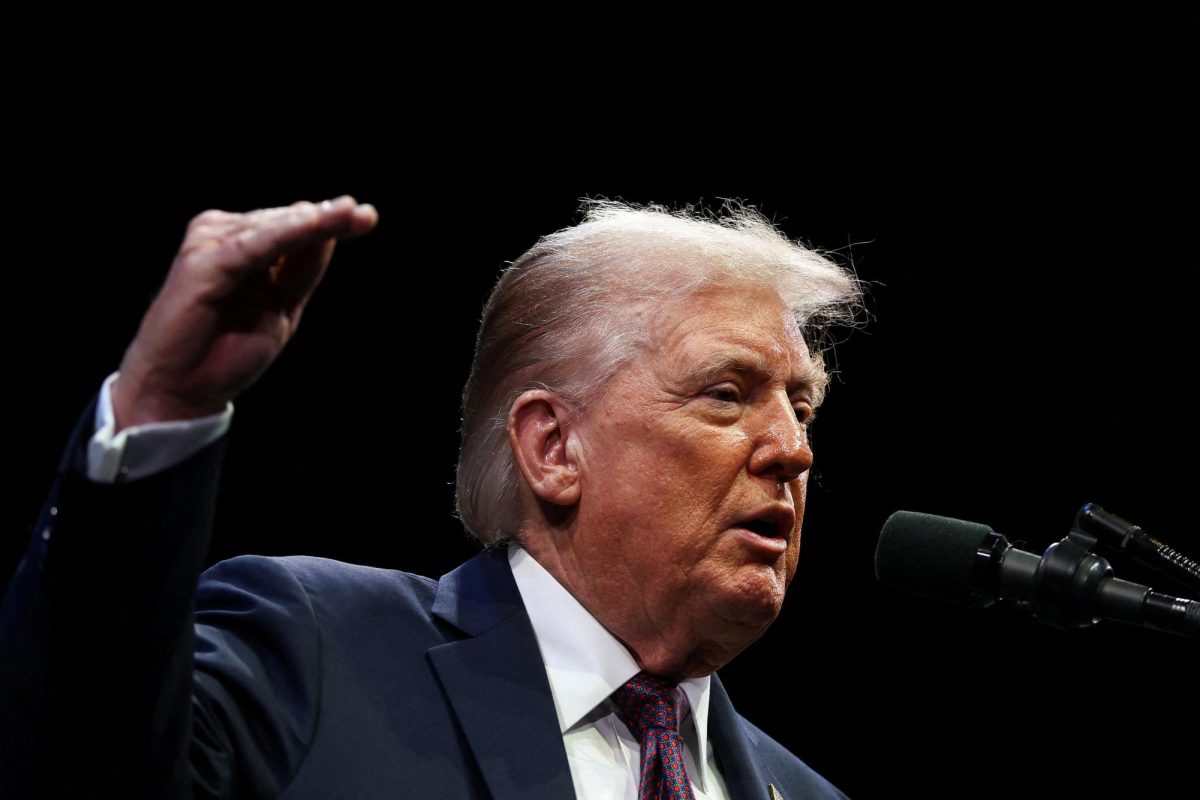“Congress shall make no law respecting an establishment of religion, or prohibiting the free exercise thereof; or abridging the freedom of speech, or of the press; or the right of the people peaceably to assemble, and to petition the Government for a redress of grievances.”
Ratified on Dec. 15, 1791, the First Amendment to the United States constitution henceforth became the most fundamental pillar of freedom and democracy in America. This year, however, only 8 months after Trump’s inauguration, this landmark of liberty is under attack and its foundation is crumbling.
President Trump and his administration have launched a seemingly coordinated attack on the constitutional design of this country by cracking down on speech he deems hateful and malicious, or that may lead to political violence such as the murder of Charlie Kirk.
However, we need to go back to the beginning. We need to go back to Trump’s first administration from 2017 to 2021. In 2017, PEN America reported that within Trump’s first 100 days in office, he or one of his workers attacked the press and erupted with the “fake news” moniker for any mainstream media organization. The next year, in 2018, Trump’s legal team sent a cease-and-desist letter to the publishing house of Michael Wolff, the author of “Fire and Fury: Inside the Trump White House”. Wolff ignored the letter and continued with publishing.
In 2020, after Twitter, now known as ‘X’, issued fact-check protocol on his posts, Trump issued an executive order with the intention of lessening the legal protections of Section 230 of the Communications Decency Act. Section 230 shields the social media companies from liability in the case that user-generated content be libelous or defamatory. In 2022, Elon Musk bought out Twitter, renaming it ‘X’ and then joined Trump’s campaign in 2024. In 2021, after the January 6th attack at the capital and D.C., Twitter and Facebook banned Trump’s accounts in hopes that he wouldn’t incite another violent incident of the like.
During the first 8 months of his second administration, things escalated rapidly. To start, in January he issued an executive order that was supposed to “end federal censorship” and protect citizens rights to free speech. The following month he issued another order that threatened the withdrawal of funding given to schools with diversity, equity, and inclusion (DEI) initiatives. The same month the White House removed the Associated Press (AP) from its press pool, as it referred to the oceanic region of the southeastern coast of the United States as the “Gulf of Mexico” instead of Trump’s preferred “Gulf of America”.
In Mar. he issued attacks on law firms who had brought cases against him in favor of DEI initiatives. He put sanctions on multiple individuals involved, including revocation of security and terminated government contracts. During that time, he was also targeting immigrants and student protestors who advocated for pro-Palestine agendas. In May, Trump signed another executive order that slashed funding for NPR and PBS, citing that there was implicit bias in their publications. Congress approved and cut $1.1 million dollars in public broadcasting funds.
This past month, ABC suspended and re-installed Jimmy Kimmel their broadcasting. Kimmel was vocal of his dislike for the Trump administration and came back on air to joke about his show needing to be “government approved”. Soon after, the Pentagon, headed by Pete Hegseth, said it will only allow government approved and credentialled journalists to report on information. They also established that all information will need to be authorized for release by Pentagon officials.
As Trump and his cabinet have continued on this campaign to restore the image of the executive, many have spoken out in opposition to his actions and have even opened lawsuits against him, claiming his efforts as disgusting and unprecedented abuse of power and a violation of the First Amendment. As of this month, Trump is involved in numerous ongoing lawsuits with First Amendment implications. The question remains: what happens now? What happens if the Constitution is violated? Impeachment is likely, if he is found guilty of violating the First Amendment, but what comes after that? Only time and court dates will tell.









